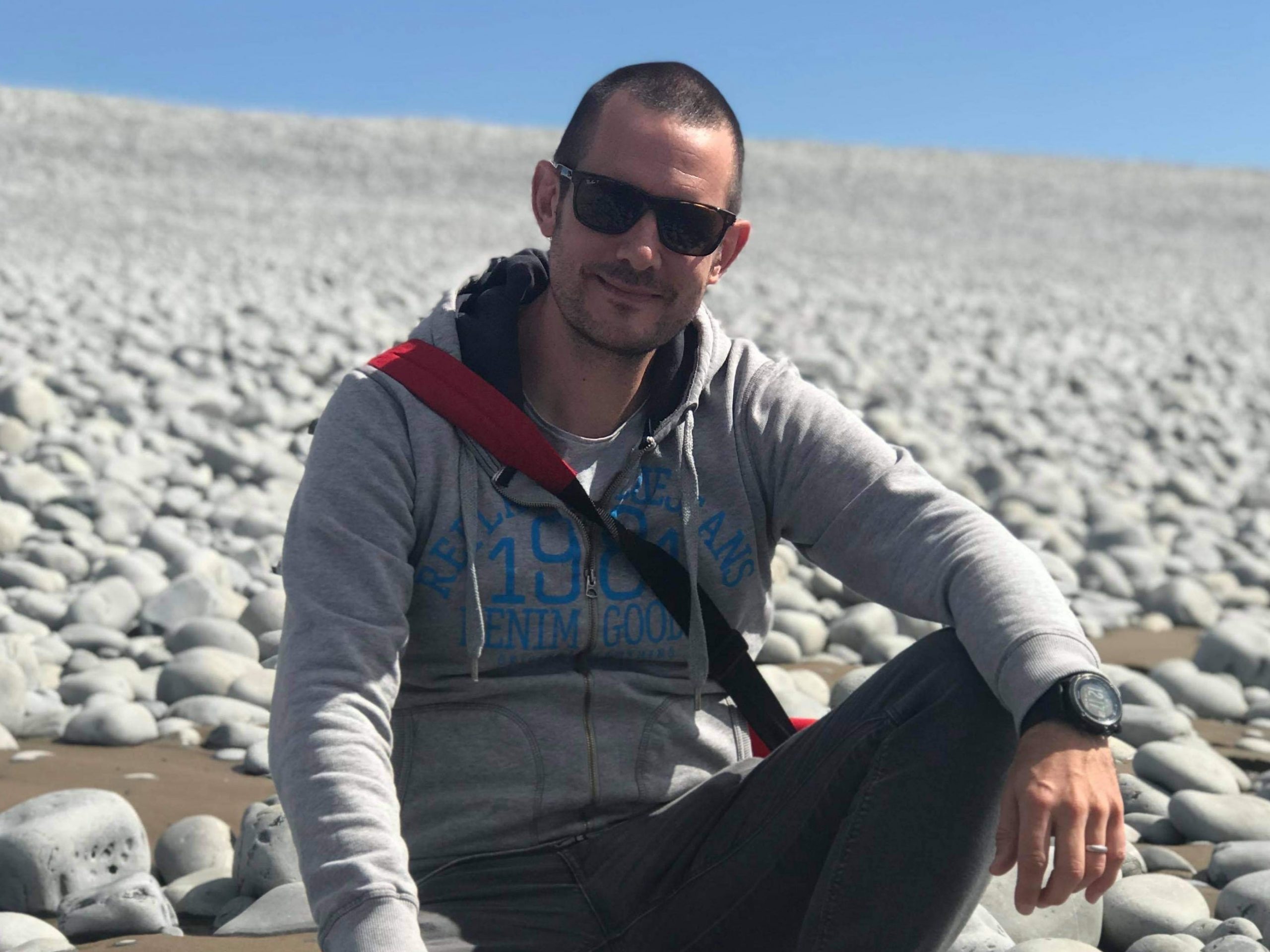
Dr Chris Hingston
- Chris Hingston, 45, is an ICU doctor at the University Hospital of Wales in Cardiff, Wales.
- On December 8, the father of two was one of the first people in the world to receive the Pfizer-BioNTech vaccine.
- Doctors, nurses, nursing home workers, and people aged 80 and up in the UK are among the first to be immunized; 50 hospitals across the UK are administering the shots.
- Pfizer-BioNTech plans to deliver 50 million doses across the world by the end of 2020.
- This is Dr. Hingston’s story, as told to freelance writer Claire Turrell.
- Visit Business Insider’s homepage for more stories.
On December 8, I experienced my first step back to normality.
I was one of the first people in the world to receive the Pfizer-BioNTech COVID-19 vaccine. I work as a doctor in the ICU at the University Hospital of Wales in Cardiff, and I’m also an air ambulance doctor.
At the clinic where I had my jab, 225 people had their vaccination on the same day.
I had mixed feelings about being one of the first people to get the jab, as I would have liked more vulnerable people to get the vaccination before me, but I knew it would help protect my patients.
The hospital told me last Friday I could have the vaccine if I wished.
An appointment was scheduled for me the following Tuesday. I had my vaccination at the Cardiff and Vale Therapy Centre. It’s a physiotherapy center, but its rehabilitation gym has been turned into a vaccination center. The atmosphere definitely felt unusual. It was the first time I have had a jab in a mass vaccination center with media watching. But I was excited.
Triage was carried out over the phone, and they checked my details once more when I arrived. The people who were having vaccinations seemed to be medical staff like myself. Plastic chairs were placed at the center of the room, and curtained cubicles around the walls. We were each allocated a numbered seat, and this correlated to the station where we had our jab.
I was given some leaflets to read about the vaccine, which was similar to the information I'd read on the website. Then the nurse called me over to a cubicle to give me the vaccination. She asked if I'd ever had reactions to vaccines before or if I had COVID-19 recently; they won't give the jab to anyone who has had COVID-19 within a month.
The vaccination needs to be stored in ultra-cold temperatures, so the cold chain and logistics are incredibly challenging for the team.
However, a pharmacy had been created on site, so once the vial of vaccine had thawed, the pharmacists would immediately prepare the syringes for the nurses so the doses could be given to the patients.
After the nurse gave me the jab, she asked me to wait for 15 minutes, as she wanted to make sure I felt comfortable. Then I was free to leave. It was a slick procedure. The jab felt less painful than my seasonal flu vaccine - in fact, I hardly noticed it.
Twenty-four hours after getting the vaccine, I've got a slightly sore left arm, but I've not had any side effects. In fact, I'm planning to go mountain biking later.
I have every faith in the process that has gone into making the vaccine. While a lot of people have got reservations about the safety aspects of it, a lot of money has been spent on research and there have been plenty of patients to trial it on. Any red tape that might have held up the process has also been removed. They haven't cut any corners. If I didn't think it was going to do me or anyone around me any good, I wouldn't have had it.
The vaccination is a two-step process, and I need to return in January for the final jab. I won't stop wearing a mask after the vaccination. I don't want to spread any cold-like symptoms and put further stress on the hospitals.
Yesterday was a fantastic day.
I'm grateful to all the scientists who have worked so hard to make this happen. It's been an incredibly challenging year. It's been interesting professionally, I suppose, learning about a new disease, but emotionally it has been tough. We have lost patients, and not being able to have families in the hospital has been very difficult.
We first heard about the virus in late December, early January, but as Asia was so good at containing viruses such as SARS and MERS, we never thought it would reach the UK. Clearly that wasn't to be the case.
We admitted our first COVID-19 patient into our ICU at the end of February. When Italy and Europe became infected, it became incredibly obvious that the UK could be faced with such large numbers.
Our shift patterns immediately changed at the hospital. I stopped working for the Air Ambulance and worked solely in the Intensive Care Unit.
One of the most frightening days for me was when we had an awful lot of admissions in a 12-hour period. It was when the virus figures were doubling every three-and-a-half days and I was worried it might continue. Fortunately, that didn't happen.
We've had our bright moments too, such as watching 70-year-old patients leave ICU after beating COVID-19, which has been incredibly rewarding.
My hope would be that a large number of the population take up the opportunity to get vaccinated and we move back towards normality. I just want to see people's lives get better around me.
What I'm looking forward to most in 2021 is seeing my elderly parents and being able to give them a hug. After 12 months of not being able to visit them, that would be the most amazing thing.
